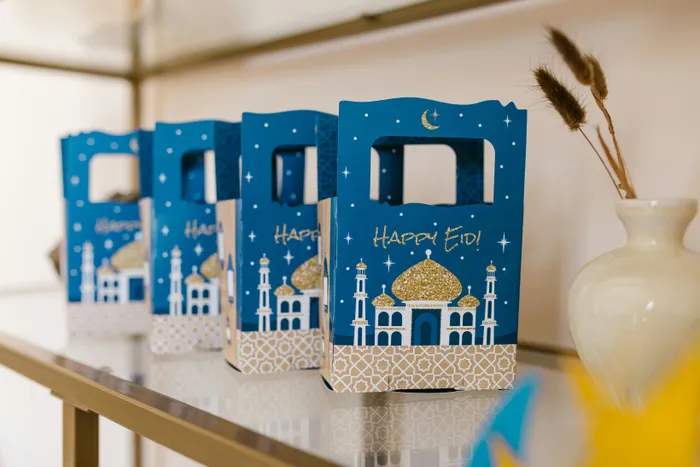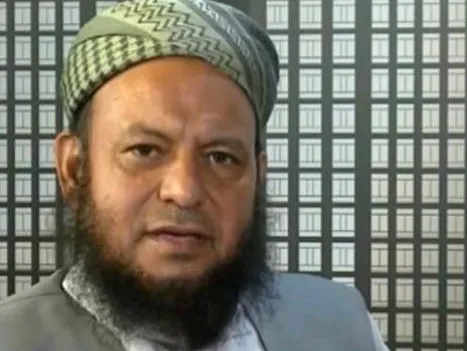Eid-ul-Fitr: harvesting fruits of virtue
A time for reflection and generosity

On Eid, families extend invitations for special meals, as part of the festivities of Eid, says Ebrahim I Bham.
Image: Pexels.com/RDNE Stock project
Eid is an occasion of festivity and joy. It is also a day of spiritual harvest and reflection.
Eid-ul-Fitr, marking the end the auspicious month of Ramadaan, takes dimensions of festivity and joy as Muslim get a sense of accomplishment that follows the exerted devotions and acts of worship that are part of the month of fasting.
Muslims in South Africa will celebrate the day of Eid today.
Fasting as one of the five pillars of Islam is divinely-ordained as a month of spiritual training, where restraints on carnal pleasures, unbridle and let our spiritual-selves flourish. By self-denying food, water and conjugal sexual intimacy, one is able to transcend the hedonistic and materialistic world, thereby creating an opportunity of spiritual rejuvenation and growth.
Coupled with this self-denial of the physical in order to nourish the soul, through fasting, from dawn to dusk, Muslims reconnect with their Creator with other acts of devotion. Such devotions include the recitation of the Qur’an, offering special prayers - besides the mandatory five - and refraining from all sorts of habits that either sow social discord and distance us from the Creator.
Backbiting, telling lies, and harbouring hate for the other, are such vices Muslims will try to liberate themselves from, while fasting.
The Messenger of Allah (peace be upon him) said: “Whoever does not give up lying and false conduct, Allah has no need in him giving up food and drink.” (Bukhārī).
This underscores the point that fasting is not in food and drink alone. One’s character and attitudes towards others have to be reformed in order to incline towards virtue.
Muslim increase in generosity and engaging in charitable activity due to the belief that good deeds get rewarded multiple times over in Ramadaan than in any other ordinary month. Just as it is tradition, many individuals, families and agencies reach out to needy communities, providing meals with which to break the fast, at dusk.
Providing breakfast is spiritually meritorious, hence the motivation for many to share in what they have. The spirit of sharing does not need to be only with the needy. The generosity of Ramadaan is extended to family members, guests and even strangers. Gifting, which is also part of the celebration of Eid, is an encouraged practice as through such exchange, hearts are joined, and bonds of brotherhood strengthened.
On Eid, families extend invitations for special meals, as part of the festivities of Eid.
Everyday life tests us in different ways. The values of resilience, patience and fortitude which Ramadaan instils and fosters are meant to see us through the rest of the months, beyond Eid, so that we cope better and manage the stressful lives we have.
When we celebrate Eid, we are also prayerful that we do not go through trials beyond what we can bear. The experience of deprivation, through hunger and thirst creates an appreciation of the hardships the less-privileged go through. Empathy and compassion should trigger us to make interventions that address the issues associated with glaring levels of inequality in our land. It is encouraging that many South Africans care for each other and give expression to such a sharing spirit, across communities.
The Prophet Muhammad (peace be upon him) is known to have said: “He is not a believer whose stomach is filled while his neighbour goes hungry."
We must promote this spirit, starting from within our localities, so that we maintain a cohesion of our nation where deprivation still marginalises many of our compatriots. Farther afield, this is a second Ramadaan with besieged Gaza enduring incessant bombardment and aerial assaults. The hope of cessation of hostilities that came with a fragile truce in January has quickly diminished with the resumption of mass-killing of Palestinians as they partook pre-dawn meals, before commencement of their fasts on March 18.
This is a source of immense pain for humanity at large, and Muslims in particular. Dehumanisation of a people through such unconscionable attacks should be deplored by all people of goodwill. It is commendable and it gives us hope that our government has stayed the course in making the case at the Hague, for the defence and protection of Palestinians against a genocide.
This is significant and - even in the darkest of days - we should neither tire nor give up the expressions of our solidarity with oppressed people across the globe in general, and Palestinians in particular.
The Jamiatul Ulama South Africa wishes Muslims in the country and the world over a joyous and blessed day of Eid. We pray this day of spiritual harvest is bountiful in the stocks of experiences of Ramadaan to sustain us through the next eleven months with dispositions of the values of steadfastness, compassion and patience.

Ebrahim I Bham
Image: Supplied
Ebrahim I Bham (Moulana) is the secretary general of the Jamiatul Ulama South Africa (the Council of Muslim Theologians) in Johannesburg. He is also the imam at Hamidia Masjid in Newtown where he leads one on the largest Muslim congregations in Gauteng.
** The views expressed do not necessarily reflect the views of IOL or Independent Media.